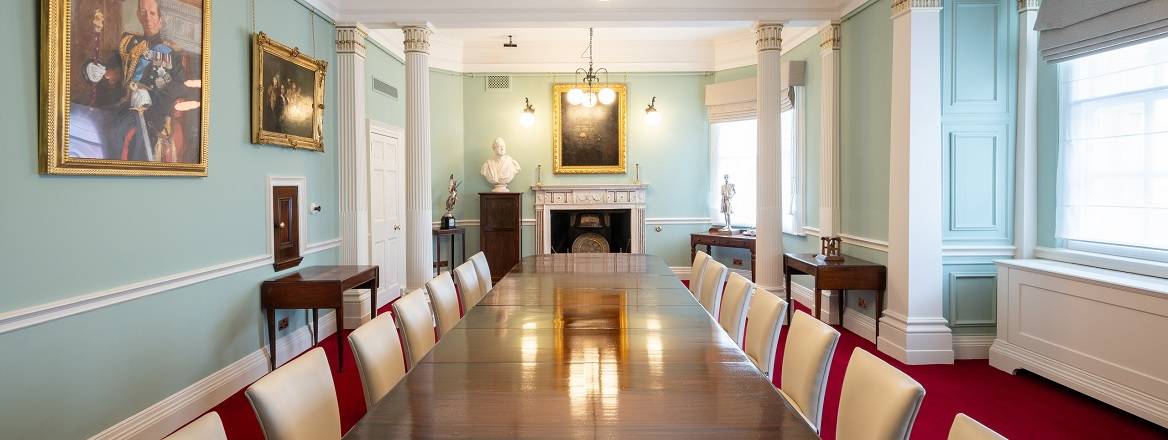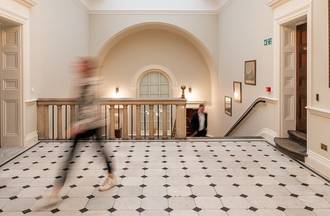RUSI Governing Bodies
RUSI recognises that good governance is fundamental to its success. RUSI and its trustees are continually working towards achieving the highest of standards.
Our governance
Patron
His Majesty the King
President
His Royal Highness The Duke of Kent KG, GCMG, GCVO, ADC
Senior Vice-Presidents
The Rt Hon the Lord Hague of Richmond
General (Ret'd) David H Petraeus
Chair
His Grace the Duke of Wellington OBE DL
Vice-Chair
RUSI is a UK registered charity and the governing document is a Royal Charter dated 22 February 1860. Some amendments to the Royal Charter of the Institute were approved at the Annual General Meeting held in July 2016.
RUSI recognises that good governance in a charity is fundamental to its success. RUSI and its trustees are continually working towards achieving the highest standards of governance, by reference to the principles and recommended practice of the Charity Governance Code (July 2017).
The Council of Trustees is accountable to the membership of the Institute, and all its members are elected at the Annual General Meeting or at a Special General Meeting. The Council of Trustees is responsible for appointing a Nominating Committee in order to provide advice on its nominations and co-options for the position of Chair, Vice-Chair and elected members. The Council meets at least four times a year. Once elected, the Institute has an induction, training and education programme in place for Trustees. The term of office for Trustees (other than the Chair and Vice-Chair) is four years; for the Chair and Vice-Chair it is five years.
The Council of Trustees bears the legal responsibility for the oversight of the Institute and its finances as defined in UK Law and the Institute’s Charter of Incorporation and Bye-Laws and resolutions. The Trustees advise the Director-General on matters relevant to the management of the business of the Institute, and are responsible for the appointment of the Director-General and Chief Finance Officer. One of the Institute’s four Standing Committees is the Finance and Performance Committee which reviews finances, performance, risk management, audit and reporting of the Institute and its subsidiaries.
The Director-General is the Chief Executive of the Institute and Secretary to the Council of Trustees. He or she is responsible for the day-to-day activities and current business of the Institute, including the management of the staff, to whom the Director-General may delegate duties. The remuneration and benefits of the Director-General are set by the Trustees, acting on the advice of the Nominating Committee.
The Institute’s Advisory Board provides advice to the Director-General on the development of the Institute’s programmes and agenda, including fundraising for the long-term benefit of the Institute. Members of the Advisory Board may be called upon from time-to-time to contribute in other ways, relevant to their expertise and experience.






